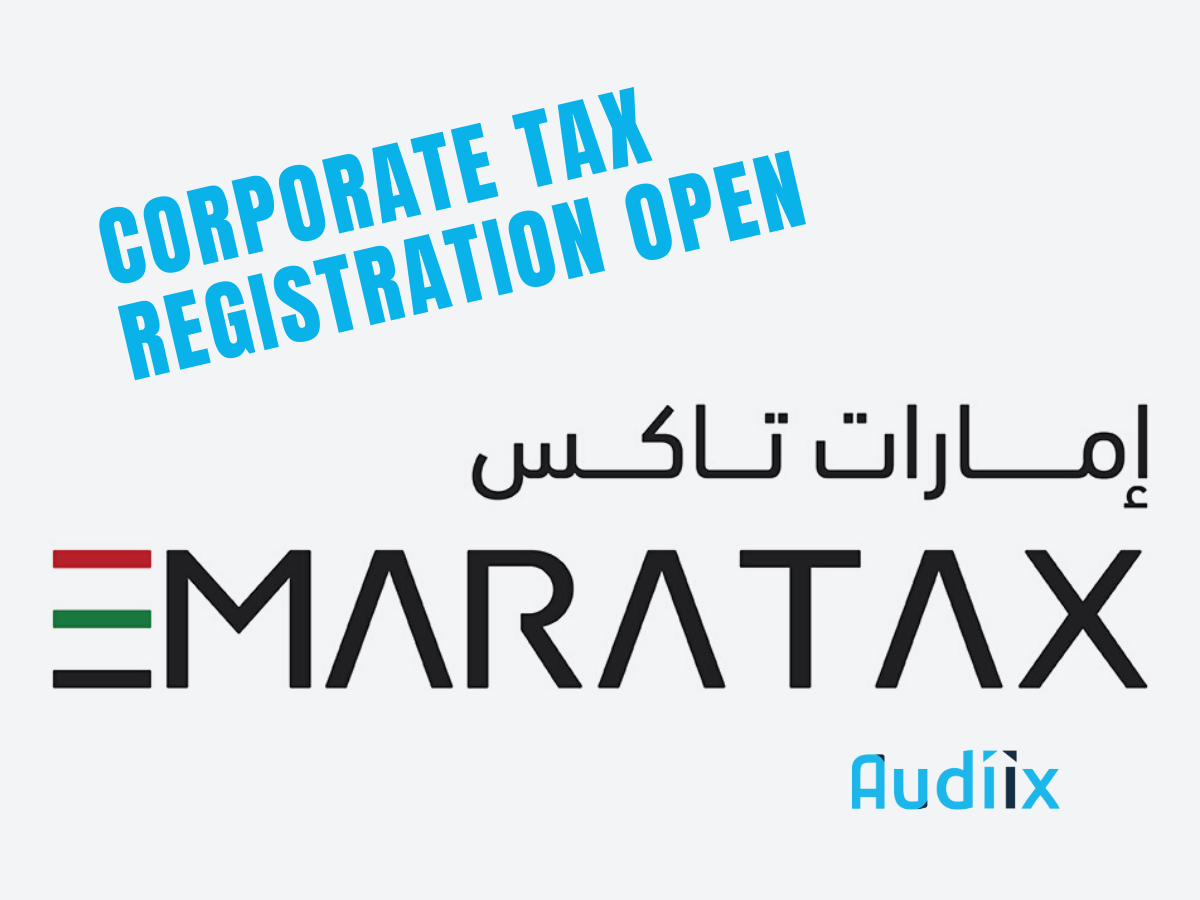Corporate Income Tax Registration

The Federal Decree-Law No. 47 of 2022, known as the “Corporate Tax Law,” mandates that Taxable Persons will be subject to Corporate Tax starting from the commencement of their first financial year on or after June 1, 2023. In accordance with this legislation, the Federal Tax Authority (FTA) of the UAE has commenced the process of businesses registration for Corporate Tax.
Registration for Corporate Income Tax differs from Value Added Tax (VAT) registration, and businesses need to be aware of the distinction. During the registration process, a different tax registration number (TRN) will be generated specifically for Corporate Tax purposes, separate from the TRN issued for VAT registration.
Eligibility for Corporate Tax Registration
The FTA has issued invitations to resident companies in the UAE to register for Corporate Tax through the EmaraTax digital tax services platform. The current phase includes the following invited entities:
- Private Companies (Limited Liability Companies)
- Public Joint Stock Companies (PJSC)
- Private Shareholding Companies (PSC)
Registration for Free Zone companies, natural persons, and formation of tax groups will be available at a later stage.
Treating Specific Business Licenses as Natural Person Ownership
For Corporate Tax purposes, licenses such as sole establishments, civil companies, freelance licenses, and similar licenses with unlimited liabilities will be disregarded and treated as the Natural Person or persons owning them, thus they will be subject to Corporate Tax and required to register in their individual capacity as a natural person. Natural persons were not yet invited to register.
Implications for Natural Persons
Natural Person’s Business Activities and Turnover
Natural persons, whether residents or non-residents, who engage in business activities in the UAE, will be subject to Corporate Tax if their total turnover exceeds AED 1 million within a Gregorian calendar year. Turnover includes revenue derived through unlimited liability licenses (e.g., sole establishments) and any other personal revenue except employment income, personal or real estate investments that do not require a license.
Natural Person’s Financial Year
A natural person’s financial year for Corporate Tax purposes will generally align with the Gregorian calendar year, unless stated otherwise in their license or determined by the licensing authority.
Registration Threshold
While there is no registration threshold for companies, natural persons will need to register for Corporate Tax if their total revenue exceeds AED 1 million within a financial year.
Registration Process
The registration process for Corporate Tax is conducted through the EmaraTax portal, which is also used for filing Value Added Tax (VAT). If you haven’t registered for VAT or Excise Tax, you will need to create an account before proceeding with the Corporate Tax registration. During the registration process, a tax registration number (TRN) will be generated, which will be the same as the VAT TRN, with the last digit being different. The FTA has not specified a deadline for registration at this time.
Considerations and Conclusion
- Review Business Structure: it is essential for businesses to review and identify their existing legal structures.
- Update Legal Documentation: ensure that licenses, shareholders, and authorized persons documentations are valid.
- Choosing the Right Taxable Person Type: It is crucial to apply for Corporate Tax registration correctly by selecting the appropriate Taxable Person type based on your business structure and licensing.
- Seek Professional Advice: to ensure compliance and optimize your tax strategies.

